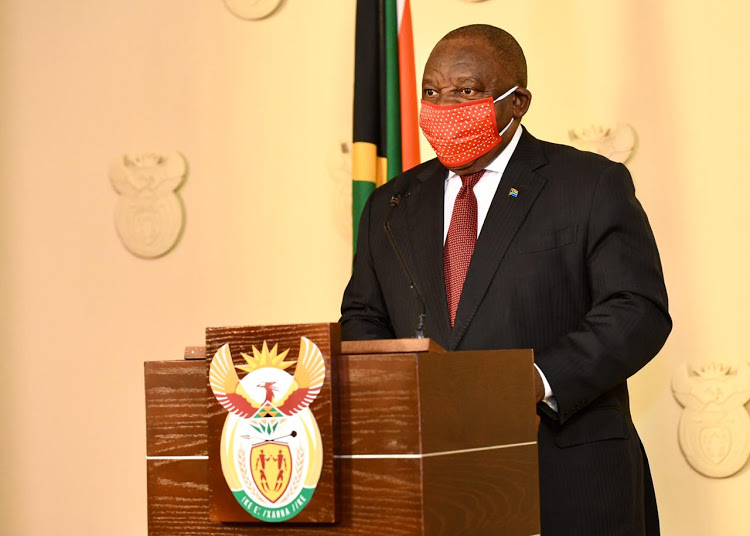These are the new level 3 lockdown regulations changes announced for South Africa

The government has made a number of changes to South Africa’s level 3 lockdown regulations, with more likely on the way, Cabinet has said. It said in a media statement on Thursday (11 June), that these changes will be based on a health assessment presentation next week. “Cabinet received an updated report from the National Coronavirus Command Council (NCCC),” it said.
“The NCCC tabled a number of recommendations pertaining to the enhanced risk-adjusted alert level 3 of the national lockdown. The recommendations are based on submissions made by various sectors and deliberations by the National Joint Operational and Intelligence Structure.
“However, Cabinet decided to defer approval of the recommendations pending a full health assessment report from the Ministerial Health Advisory Committee on Covid-19. The NCCC is expected to receive the full presentation by early next week. Despite this delay, the government published a number of new directives this week which amend the country’s existing lockdown regulations and provide clarity on a number of sectors.
These new changes are outlined in more detail below.
Travel
The Department of Home Affairs has published a new directive focusing on travel restrictions during South Africa’s coronavirus lockdown.
The directive amends earlier regulations to allow for international travel in specific circumstances – including the return of a South African national or permanent resident to his or her place of employment, study or residence, outside of the country.
It also notes that the citizen must, at least five working days in advance of the intended date of travel, provide the Department of Home Affairs with the following documentation:
A copy of his or her valid South African passport;
A letter of confirmation of admissibility or the validity of the visa or permit, issued by the relevant diplomatic or consular mission or authority of the receiving country;
Where transiting through another country, proof of permission to transit through such country. Proof of the means of travel and the intended date of departure.
The Department of Sports, Arts and Culture has published a new directive providing for the reintroduction of professional sports in South Africa.
The regulations outline the safety protocols that teams and individuals will need to follow, rules around training, as well as the hosting of events.
It should be noted that the directive primarily focuses on the presumption of ‘non-contact’ sports including:
Cycling;
Golf;
Rowing;
Tennis;
Cricket;
Squash.
The directive does state that certain ‘contact ‘sports may resume – including football and rugby – but these disciplines face greater restrictions. You can read the full directive here.
Media and Arts
In a separate directive, the Department of Sports, Arts and Culture also expanded the rules around film and television production.
Notably, the directive increases the number of people that are allowed to be on set as well as new rules around live streaming.
You can read the full directive here.
Schools
The Department of Basic Education has also published the new school calendar for the 2020 academic year.
The updated calendar provides for new term dates as well the updated school holidays, which amount to a total of seven days for the rest of the year.
Financial Sector Laws Amendment Bill of 2020
Cabinet also approved the submission of the Financial Sector Laws Amendment Bill of 2020 to Parliament.
The Bill proposes to designate the South African Reserve Bank as the Resolution Authority and enhances the SARB’s regulatory tools for discharging its statutory mandate of ensuring the stability of the financial system.
“The Bill proposes a new framework to resolve financial institutions, primarily banks when they enter a period of financial distress. It also introduces South Africa’s first comprehensive deposit insurance scheme that will ensure that depositors are paid their funds when a bank fails.”
Cabinet said such a scheme will protect the vulnerable depositors and ensure minimal disruptions to the financial system and broader economy when such institutions enter into financial distress.
President Cyril Ramaphosa meanwhile, has also referred the controversial Secrecy Bill back to parliament, citing concerns regarding its compliance with the Constitution. The Secrecy Bill, which was originally passed by the National Assembly in 2011, seeks to replace the current Protection of State Information Bill.
However, critics have warned that in its current form, the bill will explicitly infringe on the right to the access of information, the rights of whistle-blowers, and press freedom, Peregrine Treasury Solutions said.
“Somewhat ironically, this action comes as numerous calls for government to release the data being used to guide regulatory decisions made during the state of disaster continue to fall on deaf ears,” it said.









